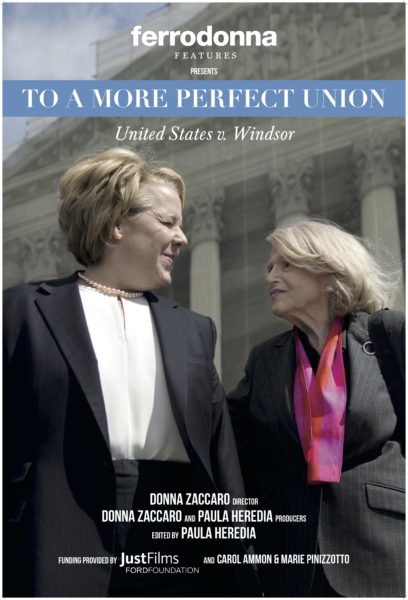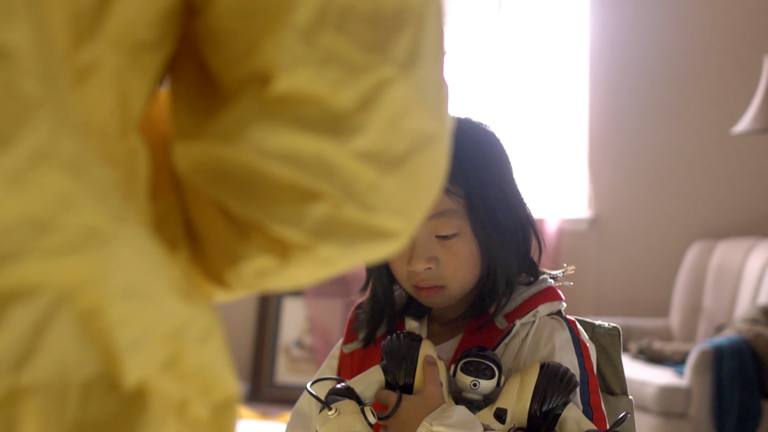The definition of equality in America was fundamentally changed on June 26th, 2013 with the Supreme Court’s ruling on US vs. Windsor. The story behind this case and the surprising legal drama surrounding it as it worked its way to the highest court in the land, is the subject of the feature documentary, To A More Perfect Union: US vs. Windsor.
On November 9th, 2010, an 81-year-old widow named Edie Windsor, filed a lawsuit contesting the estate taxes she had been forced to pay upon the death of her spouse, because that spouse was a woman. After having her case turned down by major gay rights organizations, Windsor found a champion in Roberta Kaplan, a senior partner at the prestigious corporate law firm, Paul Weiss: The traits that others saw as liabilities, Kaplan saw as assets, viewing Windsor as the perfect plaintiff – and ultimately, was proven correct in her analysis. They were two women a generation apart, both pioneers in their respective fields – Windsor, one of the first leaders in the field of computer programming at the corporate giant IBM, and Kaplan one of the leading women in corporate law – that successfully waged a battle together for justice that many – including some in the gay rights community –thought unwinnable. With the Supreme Court’s ordering of a tax refund to Windsor, it struck down the Defense of Marriage Act (DOMA) as unconstitutional. No longer could the federal government discriminate against same sex marriages.
To A More Perfect Union: US vs. Windsor tells the story of Windsor and Kaplan’s quest for justice. Their journey is told in their own words, and through interviews with members of the legal team, movement activists, legal analysts, well-known supporters and opponents. More broadly, the film also chronicles the rapid and dramatic shift in both public and political opinion about gay rights and more specifically, marriage equality – the latest chapter in the civil rights movement.



